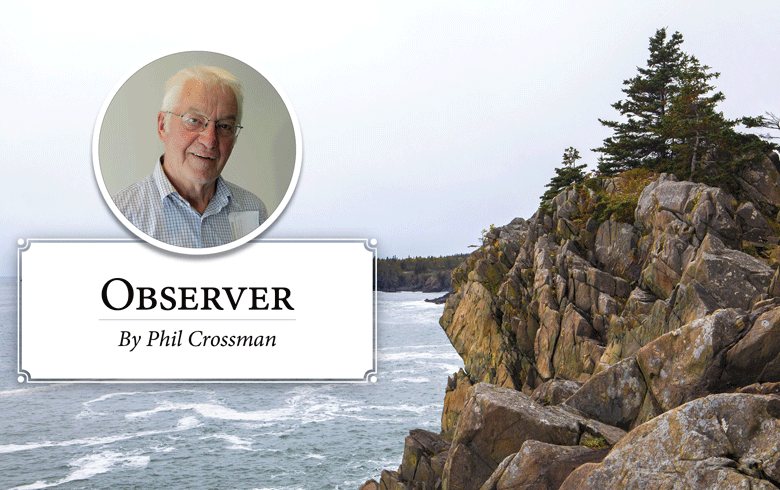Whenever I can listen and do whatever else I’m doing simultaneously, I tune in to “At the Hop” on WERU-FM (89.9) on Saturday afternoons. Host Rick Foster’s regard for the music and for those of us he supposes are listening, his ironic consideration of the mood and the music, are perfectly conducive.
As you might suspect—those of you not already in the know—the show features music from the 1950s and 1960s, those memorable years when I struggled to come to grips with my awkward teenage self, with my insecurities, with my inability to dance without hurting someone—certainly her, sometimes both of us—or play basketball—sometimes them, always me—when, in fact, those were what I wanted more than anything to do and do well.
I wanted to stroll confidently into the old town hall, which doubled as the gym, during those Friday night record hops and bask in the warm anticipation of all those girls who were trying to appear nonchalant while secretly hoping I would sweep them off their feet to jitterbug, twist, watusi, or maybe—be still my heart—even hold them tight and waltz.
I wanted to dance like my classmate Joe White. Instead I lingered in the shadows…
I wanted to dance like my classmate Joe White. Instead I lingered in the shadows near the entrance trying to screw up the courage to ask just once, just one of them, to dance, at some point during the long night.
I wanted to dribble, sure-footed and confident, downcourt while opposing players, double-teaming me, tried in vain to keep up, then leap gracefully through the air and stuff the ball in the basket.
I wanted to play like Larry Hopkins. Instead, while eliciting oohs and aahs from strangers when I first came on court, towering over my five teammates and over the opposing team, it soon became apparent that I, the tallest boy on the court, was the only second-string player in our six man team.
Clearly, I was equipped to do those things, to be that kid. I was only 14 but 6 very long feet tall.
The problem, though, manifest in my inability to even walk upright safely, let alone dance or play basketball, was that 12 short months earlier, in 1957, I’d been only 5-feet tall and growing a foot in a year, through no choice of my own, was a struggle, one I could do nothing about except go along for the ride.
Apparently a message traveling effectively 5 feet from head to toe was routine but traveling 6 feet between the same extremities was like calling to the moon. It was a rough ride.
“At The Hop” stirs all sorts of things within me, certainly melancholy, but mustn’t there be something else? I mean, melancholy is very close to sadness, and sadness is undeniably manifest off and on during those few hours between 3 and 5 p.m. as I remember watching other guys do well what I couldn’t do at all.
But if all I got out of it was sadness, does it seem likely I’d listen? No, surely I’d opt out, find something else to do—but I don’t. It’s irresistible.
If I’m in my shop I’m nearly always singing along—singing well I’m told by those who recognize my condition for what it is and are concerned. If I’m driving, it’s with volume up and windows down, while Buddy Holly sings “That’ll be the Day” or “Peggy Sue.”
Sometimes though, during those rides, I should really pull over and get a hold of myself for the sake of others as when Johnny Tillotson sings “Without You.”
I’ve heard it said that melancholy is not a good thing for someone my age but I’m only vulnerable on Saturdays between 3 and 5 p.m. The rest of the week I’m fine.
Phil Crossman lives on Vinalhaven where he serves on the town select board.





